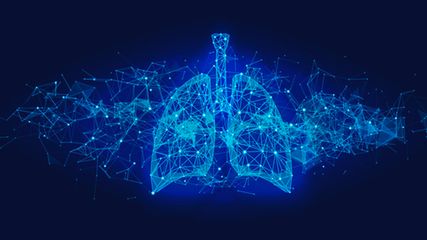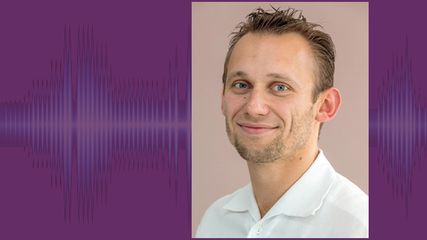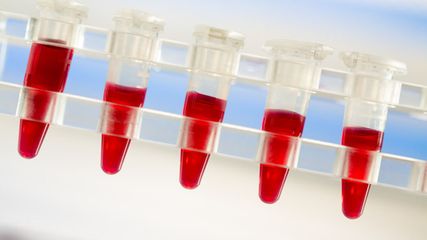
«The Young Oncology Academy exceeds my expectations»
Unser Gesprächspartner:
Dr. med. Francesco Manfredi
Assistenzarzt
Klinik für Medizinische Onkologie und Hämatologie
Universitätsspital Zürich
E-Mail: francesco.manfredi@usz.ch
Das Interview führte Ingeborg Morawetz, MA
The Swiss Cancer Institute’s Young Oncology Academy (YOA) is a support and mentorship program for young oncologists. The program is aimed at junior doctors with a clear focus on cancer medicine, hematology, radiation oncology, urology, gynecology, pathology or dermatology who wish to make an active contribution to clinical and translational research. Academy participants are supervised by a renowned faculty member for almost a year. We spoke to Dr. med. Francesco Manfredi, who is taking part in the Young Oncology Academy this year.
Congratulations on being accepted into the Young Oncology Academy! How did you hear about the opportunity to apply to the program?
F. Manfredi: I heard about the Young Oncology Academy from a colleague who applied the year before and really enjoyed the program. Afterwards he sent an email to all of us assistant doctors to tell us about the great opportunity. That is the reason why I applied.
What are your expectations for this year in the Young Oncology Academy?
F. Manfredi: I am most interested in the courses and in the international meetings which I wouldn’t be able to access on my own. Additionally, I think that networking is of great importance in every profession and, for sure, in medicine, a field in which you can never know everything.
Even more so for me: I came to Switzerland a few years ago, so I am not very well connected in the medical community yet. In the YOA, you meet peers but you also meet more senior researchers and doctors who can help you and guide you in the long term.
So far, in all these points, the YOA exceeds my expectations.
What is in store for you this year?
F. Manfredi: We already attended some courses and the EHA Annual Congress. We are not too many YOA attendees, which is nice. And because the access to the academy is regulated by a competition people are very engaged and eager to participate. It makes for a good atmosphere.
So far, I am really looking forward to the next meeting. For my liking, there could be even more meetings. But I do understand that this would be impossible to organize. We are all trying our best with the time we have.
What are you most excited about?
F. Manfredi: I think, the courses themselves. They are very important, you learn how to conceptualize and perform a clinical trial or how to do statistics. Those are things you learn about in your student years, but in the course of a medical career you often don’t have enough focus for that. And then you end up in a moment in your career when you need them – and you don’t know anything. The courses in the YOA are very condensed and hands-on, that really helps to develop a new understanding.
So far we had three events. The first event was one about speaking in public and giving presentations. Even if you’ve already taken a course in this field, there’s always room for improvement. In a real-life setting you are rarely getting honest feedback, because people are either too critical or too positive. In the course, this was different.
What obstacles have you encountered in your day-to-day work and research? What do you really benefit most from at the Young Oncology Academy?
F. Manfredi: As a doctor, it’s always tricky to do research – because you obviously must be both a proficient doctor and a proficient researcher, and sometimes the time to do both things is limited. At the moment I am trying to do both 50/50, and I hope I will be able to continue to do so without compromising. It’s tough but I can’t complain.
One of the reasons I came to Switzerland is that it is one of the few places on the European continent which allow you to do research and clinical practice side by side and even supports you in it. The same goes for the Swiss Cancer Institute and the Young Oncology Academy. They have many programs to sustain you in your physician-scientist career.
Who is your mentor? How was it getting to know them?
F. Manfredi: My mentor is Prof. Gabriela Baerlocher. I already met her twice. She’s super, she’s very nice, she’s very knowledgeable. I am looking forward to the invaluable advice she can give me, the kind you can’t find in any book. I am very grateful for this opportunity.
What path would you like to take in your medical-scientific career and what ideas do you have about it?
F. Manfredi: If someone joins the academy, they probably would like to be a doctor, but also would like to do a little bit of research and possibly the kind of bench-to-bedside research which is efficient in developing or modifying a new treatment. And that’s my goal as well.
In order to achieve that goal, I want to strengthen my background in translational research and create a bigger network through the YOA.
What are your research interests?
F. Manfredi:
Thinking far back, when I first had lessons on oncology, I was fascinated by how it was unclear how cancer develops. Now we have an amazing insight on how the immune system plays a central role in making sure that no cancer cells develop. And I am really interested in all of those mechanisms.
I probably ended up in hematology because blood is where the immune system resides, and hematology is also the branch of medicine where we likely know the most about how everything works, for the simple reason that blood is easier to culture compared to other tissues.
Which profession, apart from doctor, would you have liked to pursue?
F. Manfredi: I always liked the invention part of the world, the engineering. Now I am in genetic engineering, on the cellular level, but I would probably have done some kind of engineering anyhow.
Is it sometimes difficult to be taken seriously as a young doctor?
F. Manfredi: Yes, it is. It’s better now, years later, but earlier on, in Italy, it happened more often: «Hello, I am a very young doctor, it’s nice meeting you, I am now going to prescribe you drugs.» That’s not always easy, but I understand the doubt. That’s why I always assure the patients that at a clinic we are working as a team and are discussing every case together with the senior doctors.
It also helps to grow a beard to be taken more seriously, funnily enough.
Do you have personal role models – be it from your private environment or from (medical) history?
F. Manfredi: There’s of course my current mentor, Prof. Baerlocher. Then there’s Prof. Chiara Bonini in Italy, she is a big shot in the field of T cell engineering. And also now Prof. Markus G. Manz, an amazing clinician and scientist. In the scientific field I also admire Prof. Rita Levi-Montalcini who died in 2012 at the age of 103. She discovered the NGF, the neuronal growth factor. I wouldn’t call everybody a role model, but there are many people who I think highly of.
What were you most surprised by on your way into hematology/oncology?
F. Manfredi: How broad the field is and how little we know. Before the discovery of DNA it was more or less a «let’s hope for the best» scenario.
How did you learn about the Swiss Cancer Institute? Did you already know about it before applying for the YOA?
F. Manfredi: I knew the Swiss Cancer Institute from before, however, since they are mostly in Switzerland I didn’t know them well. Now I am getting to know them better and I am really enjoying what they are doing. They are also exceptionally organized. I wouldn’t mind being even more involved with them.
Das könnte Sie auch interessieren:
Erhaltungstherapie mit Atezolizumab nach adjuvanter Chemotherapie
Die zusätzliche adjuvante Gabe von Atezolizumab nach kompletter Resektion und adjuvanter Chemotherapie führte in der IMpower010-Studie zu einem signifikant verlängerten krankheitsfreien ...
Highlights zu Lymphomen
Assoc.Prof. Dr. Thomas Melchardt, PhD zu diesjährigen Highlights des ASCO und EHA im Bereich der Lymphome, darunter die Ergebnisse der Studien SHINE und ECHELON-1
Aktualisierte Ergebnisse für Blinatumomab bei neu diagnostizierten Patienten
Die Ergebnisse der D-ALBA-Studie bestätigen die Chemotherapie-freie Induktions- und Konsolidierungsstrategie bei erwachsenen Patienten mit Ph+ ALL. Mit einer 3-jährigen ...


